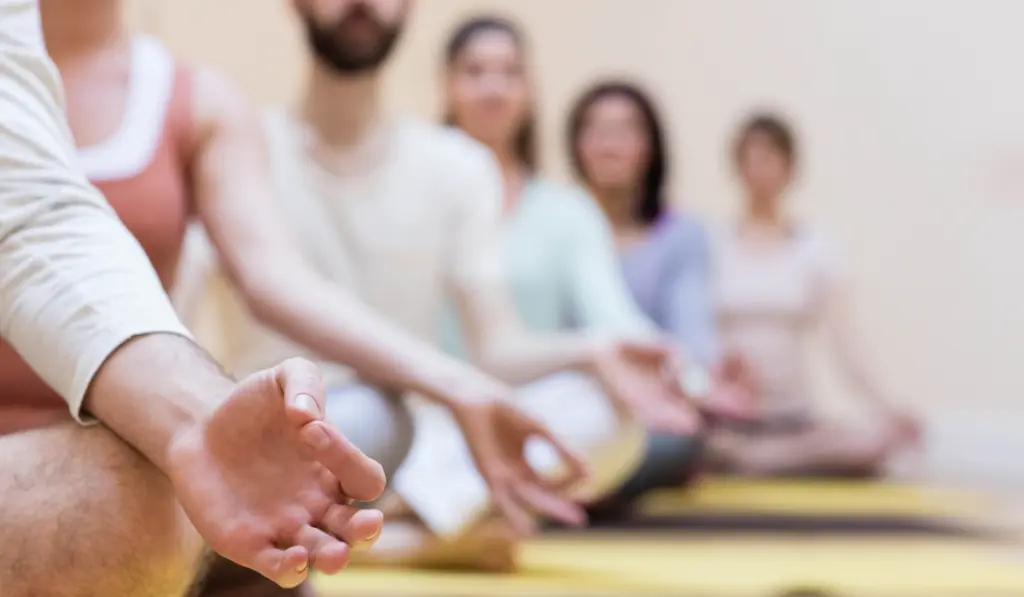Mastering the Meditation is a practice that has been part of various cultures for centuries. From ancient Eastern traditions to modern Western approaches, meditation involves training the mind to focus and redirect thoughts. It aims to bring about mental clarity, relaxation, and a sense of well-being.
- Definition and historical background: Meditation can be defined as the act of focusing one’s mind for a period of time. Historically, various forms of meditation have been practiced in different spiritual and religious traditions, such as Buddhism, Hinduism, and Taoism, among others.
- Benefits of practicing meditation: The benefits of meditation are numerous and well-documented. From reducing stress and anxiety to improving concentration and emotional well-being, regular practice of Mastering in meditation can lead to positive changes in both the mind and body.
- Common misconceptions about meditation: One of the common misconceptions about meditation is that it requires sitting in silence for extended periods. In reality, there are many different forms of meditation, and it can be adapted to suit individual preferences and lifestyles.
How to Get Started with Meditation

Setting up a comfortable space
Creating a dedicated meditation space can help establish a routine and set the tone for your practice. Choose a quiet, clutter-free area where you feel relaxed and can focus without distractions.
- Breathing techniques for beginners: One of the fundamental aspects of meditation is focusing on the breath. Simple breathing techniques, such as deep belly breathing or the 4-7-8 method, can help calm the mind and body.
- Finding a meditation style that suits you: There are various meditation styles to explore, such as mindfulness, guided meditation, and transcendental meditation. Experiment with different techniques to find what resonates with you.
Overcoming Challenges in Meditation
- Dealing with distractions: It’s normal for the mind to wander during meditation. Instead of getting frustrated, acknowledge the distractions and gently guide your focus back to the present moment.
- Understanding the concept of mindfulness: Mindfulness is the practice of being fully present and aware of your thoughts, feelings, and sensations in the moment. By cultivating mindfulness, you can deepen your meditation practice.
- Patience and persistence in meditation practice: Consistency is key when it comes to meditation. Be patient with yourself and trust in the process, even when faced with challenges or setbacks.
Techniques for Deepening Your Meditation Practice
Mindfulness Meditation
Mindfulness meditation involves bringing awareness to the present moment without judgment. It encourages a non-reactive awareness of your thoughts and feelings.
- Focus on the present moment:Rather than dwelling on the past or worrying about the future, mindfulness meditation encourages you to focus on the here and now.
Maintaining a Consistent Meditation Practice

Establishing a Meditation Routine
- Setting realistic goals for meditation practice: Start with short sessions and gradually increase the duration as you build your practice. Setting achievable goals will help you stay motivated.
- Integrating meditation into your daily life: Incorporate meditation into your daily routine by choosing a consistent time and place to practice. This will make it easier to commit to regular meditation sessions.
- Creating a meditation ritual for consistency: Developing a ritual around your meditation practice, such as lighting a candle or playing soothing music, can help signal to your brain that it’s time to meditate.
Overcoming Plateaus in Meditation
- Dealing with frustration in meditation practice: If you feel stuck or frustrated with your meditation progress, remind yourself that it’s a journey with ups and downs. Be gentle with yourself and trust in the process.
- Tips for overcoming meditation plateaus: Try mixing up your meditation routine, exploring new techniques, or seeking guidance from experienced meditators or teachers to overcome plateaus and reinvigorate your practice.
- Seeking guidance from experienced meditators or teachers: Having a mentor or teacher can provide valuable insight and support as you navigate challenges in your meditation practice.
Reflecting on Your Meditation Journey
- Journaling about your meditation practice: Keeping a meditation journal can help you track your progress, reflect on insights, and celebrate milestones along your meditation journey.
- Tracking progress and growth in meditation: Documenting your experiences, thoughts, and emotions can provide valuable insights into your meditation practice and personal growth.
- Celebrating milestones in your meditation journey: Take time to acknowledge and celebrate your achievements, whether it’s maintaining a consistent practice, deepening your focus, or experiencing moments of clarity and peace.
Summary and FAQs
Key takeaways from mastering meditation techniques for beginners
- Importance of regular practice and consistency: Consistency is key when it comes to meditation. Establishing a routine and committing to regular practice can help you experience the full benefits of meditation.
- Benefits of exploring different meditation styles: Experimenting with various meditation techniques can help you find what resonates with you and deepen your practice over time.
- Embracing challenges and learning from setbacks: Rather than viewing challenges as obstacles, see them as opportunities for growth and self-discovery in your meditation journey.
Frequently Asked Questions about Meditation for Beginners
- How long should I meditate each day as a beginner?
- Begin with short sessions, such as 5-10 minutes, and gradually increase the duration as you feel comfortable.
- Can anyone practice meditation, regardless of religious beliefs?
- Yes, Mastering in meditation is a secular practice that can benefit individuals of all backgrounds, beliefs, and walks of life.
- How do I know if I am meditating correctly?
- There is no right or wrong way to meditate. Trust your instincts, stay open to the process, and focus on cultivating a sense of presence and awareness.